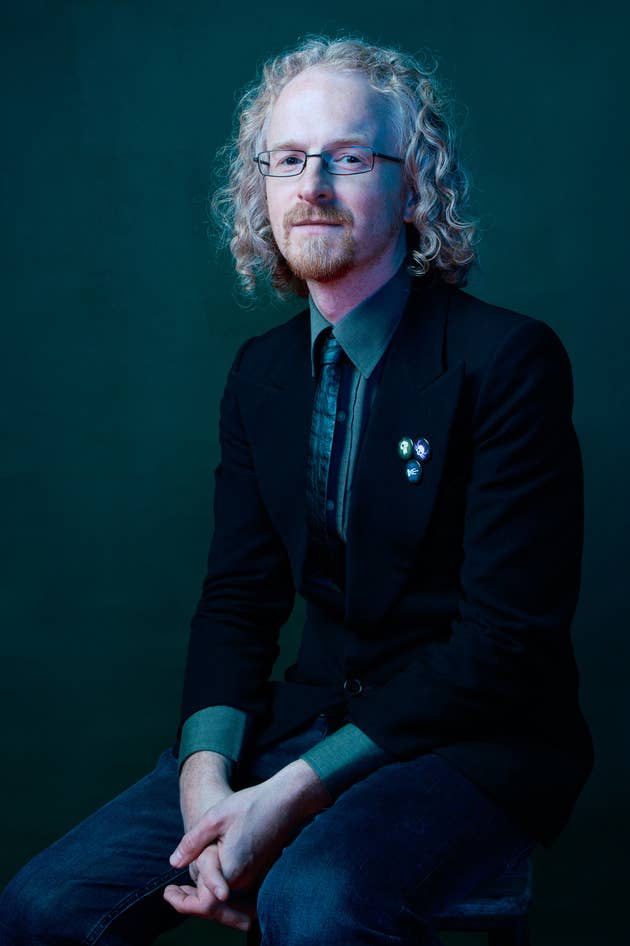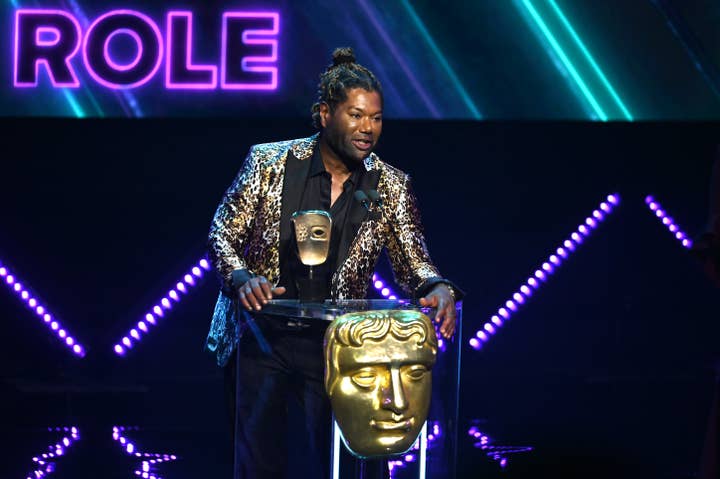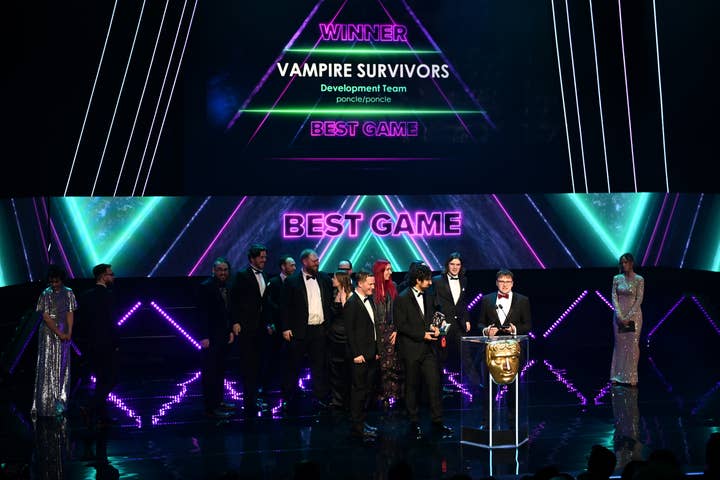20 years of the BAFTA Games Awards
We speak to the organiser behind the prestigious awards about how they have evolved over time and the role they have played in bringing the best games to a wider audience
Sign up for the GI Daily here to get the biggest news straight to your inbox
Tonight, London’s Southbank Centre will host the 20th edition of the BAFTA Games Awards. For two decades, one of the most prestigious awards from the world of film and TV has held a dedicated ceremony to recognise excellence in video games and there are no signs of the organisation losing any of its interest or enthusiasm for the medium.
The industry is almost unrecognisable compared to when the first games BAFTAs were held. In 2004, the PlayStation 2 was still king, Xbox was a plucky newcomer to the space, retail was still the dominant channel for buying games, and mobile titles had arguably still peaked with the years-old Snake.
Over time, we’ve seen the rise of online multiplayer gaming, the smartphone revolution, the adoption of virtual reality, the expansion of the indie scene… the list goes on. And BAFTA’s head of games Luke Hebblethwaite says the organisation has done its best to evolve the awards accordingly.
“If you look back at BAFTA’s very first ceremony 20 years ago, it reflected a different, slightly more innocent time, we might say,” he tells GamesIndustry.biz. “It felt a bit more like a corporate conference event, whereas these days our awards stand shoulder-to-shoulder with the film and TV awards. They’re red carpet events, they’re high prestige, and they’re widely covered by the media.
"Film was seen as a lesser art and theatre, TV as lesser than film, and BAFTA was a pivotal organisation that helped change that. That can be our role in games too"
“The show itself has evolved quite a lot – if we kept the same categories that we had 20 years ago, those would look very outdated. We no longer have genre-based awards, we don’t have platform or device-based awards. 257 games were entered for the BAFTA games awards this year and they are across every device type, across all kinds of genres and games, and they are able to compete equally on equal footing with each other these days.
“BAFTA’s awards reflect the craft of making games, and we see those games that excel in what they’re doing get recognised by our voting members and our juries to place them amongst the best in our industry.”
There isn’t exactly a shortage of video game awards ceremonies – almost every industry conference has its own awards attached – but what makes the BAFTAs stand out is the prestige it brings from a history of recognising excellence in other entertainment sectors. Hebblethwaite emphasises that BAFTA itself is “an arts charity that exists to champion the creative and cultural importance” of entertainment, and games are a key medium within that mission.
“Coming from the heritage of film and TV that we have built up over those 75 years, BAFTA’s name carries a lot of weight with it that comes from that cultural importance,” he continues. “We’re able to convey that message of the importance of games to a wider medium.”
"The fact that games are seen as a cultural medium and not just an economic entity is essential for how the industry grows"
Hebblethwaite suggests that BAFTA’s games awards – as well as the wider work it does in this space, such as the Breakthrough Brits, Young Game Designers competition, and masterclasses – all help to “level the playing field of understanding,” opening up the world of video games to parents, teachers, policymakers and more. And that understanding is vital to the future of the industry.
“The fact that games are seen as a cultural medium and not just an economic entity is essential for how the industry grows,” he says. “If you think about the ever-expanding need to grow the market for games, our addressable market, the people that are playing games, BAFTA is bringing games to new audiences.
“Our media cut through is fantastic. We’re live on the ten o’clock news and the six o’clock news on the red carpet for the games awards. And so we’re able to convey that message to people who are receptive to hearing about BAFTA from our work in film and TV. That opens more doors and continues to expand who’s interested in games and playing them.”
That media cut-through is another element of BAFTA’s game awards that has evolved. Hebblethwaite points to the fact that the announcement of this year’s host, comedian Phil Wang, made the front page of the BBC News website – “a new achievement for us,” the BAFTA games head adds. Similarly, BAFTA was able to draw attention to the longlist of nominees by releasing this earlier than usual, around Christmas, highlighting the 60 best video games of the year. Even a recent BAFTA poll made headlines, with fans voting Lara Croft as the most iconic video game character of all time.
Hebblethwaite also cites a recent survey BAFTA conducted with Ofcom, which shows that 37% of 18 to 34-year-olds in the UK either watched or heard about the 2023 games awards. Across the general population, this came in at 25%. And of those that don’t watch the ceremony, around half later find out about the results, either actively seeking them or coming across them when reading the news.
Despite how the awareness of the BAFTA Games Awards has grown in the last 20 years, there is still a disparity that’s worth addressing. The film and TV editions of the awards are televised every year, while the games awards are only broadcast via a livestream (you can tune in yourself via the BAFTA YouTube channel). Hebblethwaite argues that this is in part because the gaming audience is more likely to watch something online, and also that there is a greater need to reach an international viewership – something more easily accomplished via a livestream than terrestrial channels – than the film and TV awards.

“The Games Awards is an internationally facing awards,” he explains. “Games are inherently an international product or an international media. The games represented at are international. We only have one British game award, whereas the BAFTA TV Awards focus very heavily on British TV, and so they’re are televised there.
“The film awards fit within the schedule of how film awards work around the world, and that’s a complicated path to the Oscars and so forth. With the games awards, we’re trying to position that towards where games fans are and they are natively online. So we direct towards online platforms because that’s where we meet a slightly younger demographic who are more likely to watch what we’re doing. But we have ambitions to continue to grow that audience.”
The broadcast of the awards may be handled differently, but Hebblethwaite tells us BAFTA is increasingly determined to treat the talent behind the games with the same reverence and respect as it does for film and TV icons. He points to a recent BAFTA masterclass with Yoshinori Kitase, director of Final Fantasy 7; after the masterclass, BAFTA did a number of additional things behind the scenes with the veteran director, including video interviews, a press briefing, and a photoshoot.
“It’s the same sort of experience that we had with Margot Robbie just a few days before, or we’d have with Ridley Scott If he came to town,” Hebblethwaite explains. “It’s really important that games people get that same level of experience. And within BAFTA that’s definitely one of the things over the last two years we’ve really advocated for and have done a lot more to support our community.”
However, more so than film and TV, video games are very much a team effort. Certainly in the AAA space, no single individual can be credited with the quality of a game – it takes hundreds, perhaps thousands of people working together to put together some of the biggest titles on the market. It’s a stark contrast to other entertainment mediums, where each release has a ‘face’ to it, be it the director or lead actor.
Hebblethwaite recognises this, and even observes that companies reflect this during the BAFTA nomination process – when asked for named individuals, most will credit the team or studio.
“We also don’t deal with celebrity in the same way in the games world as we do in film and TV,” he adds. “We do have famous people if you look at certain auteurs within the industry. Or voice actors – I think they are probably some of the closer things we have to that. And it’s great that we have those things, everyone likes a human face they can get behind and following someone’s story, and that can bring a lot to our industry. But it’s absolutely about that recognition of teamwork.”

This extends into BAFTA’s wider work in the games space. The industry or student-facing events it holds often feature experts from a range of disciplines from across the game-making process, and Hebblethwaite is keen to build further on this.
"No matter what it is you do, you deserve your time on BAFTA’s stage and in our work"
“It’s just as important that we have technical artists on stage as we do creative directors,” he says. “It’s just as important we have community managers on stage, as we do voice actors. The work that those people do is pivotal to how games get made and the success of those games in ways that are so interesting to discuss and to learn about and to share that knowledge and insight. No matter what it is you do, you deserve your time on BAFTA’s stage and in our work.”
While the mainstream awareness and acceptance of video games has grown dramatically in the last two decades, the industry still has barriers to overcome. BAFTA may aim to give video games the same treatment it does to TV and film, but the wider population does not necessarily regard them equally.
“You and I know that shouldn’t be the case, but we know there’s that hurdle that still exists,” Hebblethwaite acknowledges. “There was once a time we could have said the same about TV and film. Film was seen as a lesser art and theatre, and TV was seen as a lesser art than film, and BAFTA was one of those pivotal organisations around the world that helped change that, and that can be our role in games as well.
“I very much believe that that’s something we can do and one of the missions we have ahead of us. It will work in a slightly different way for games than it did for film and TV and so forth, but that’s really the future for BAFTA and for games.”
Sign up for the GI Daily here to get the biggest news straight to your inbox









